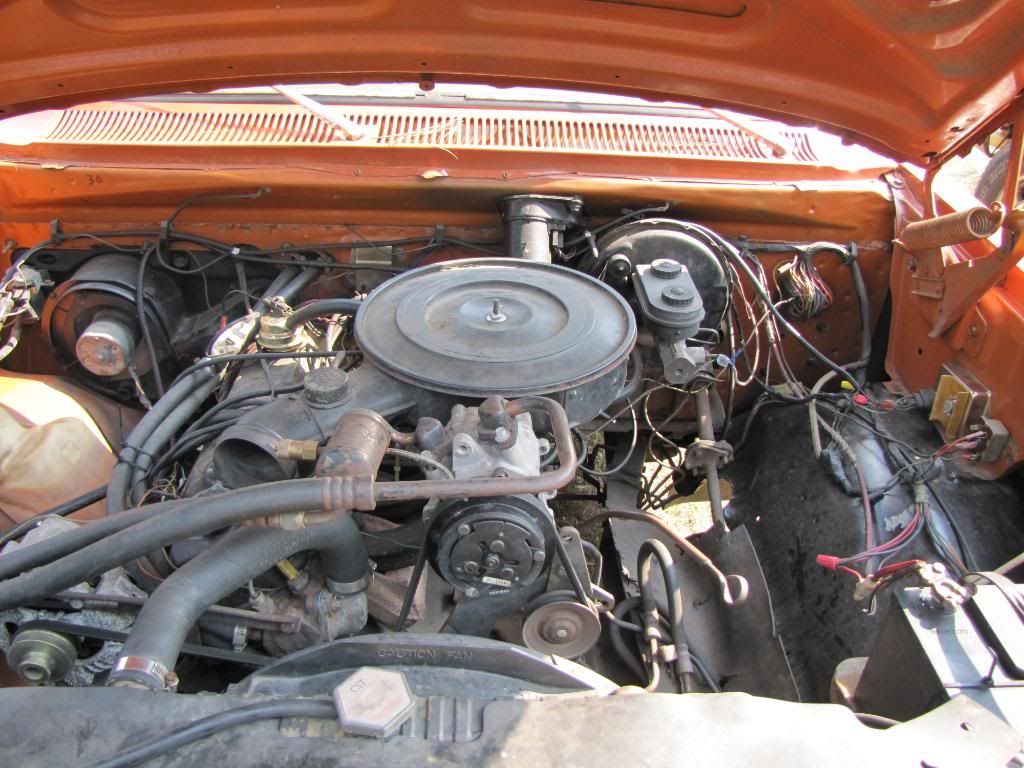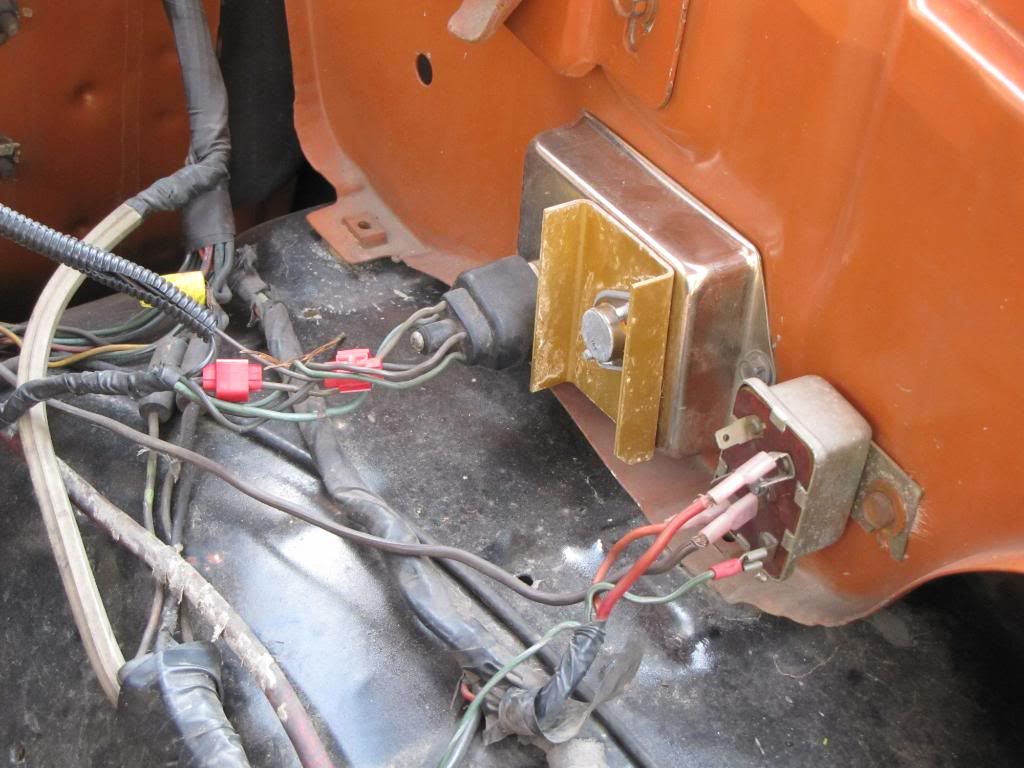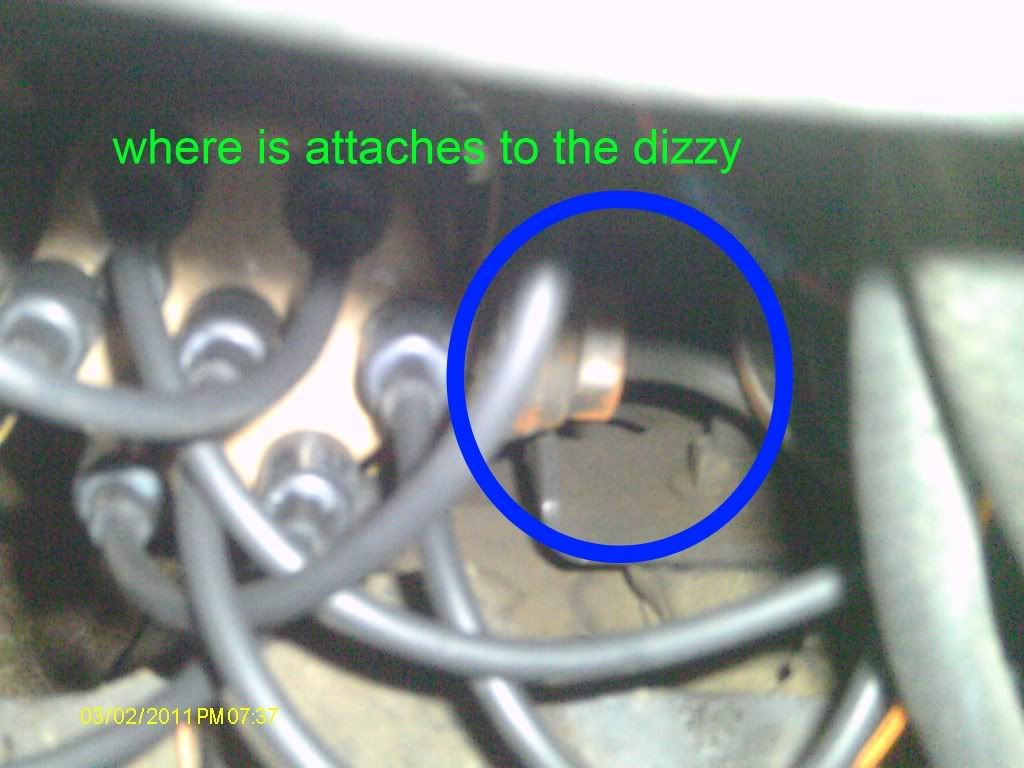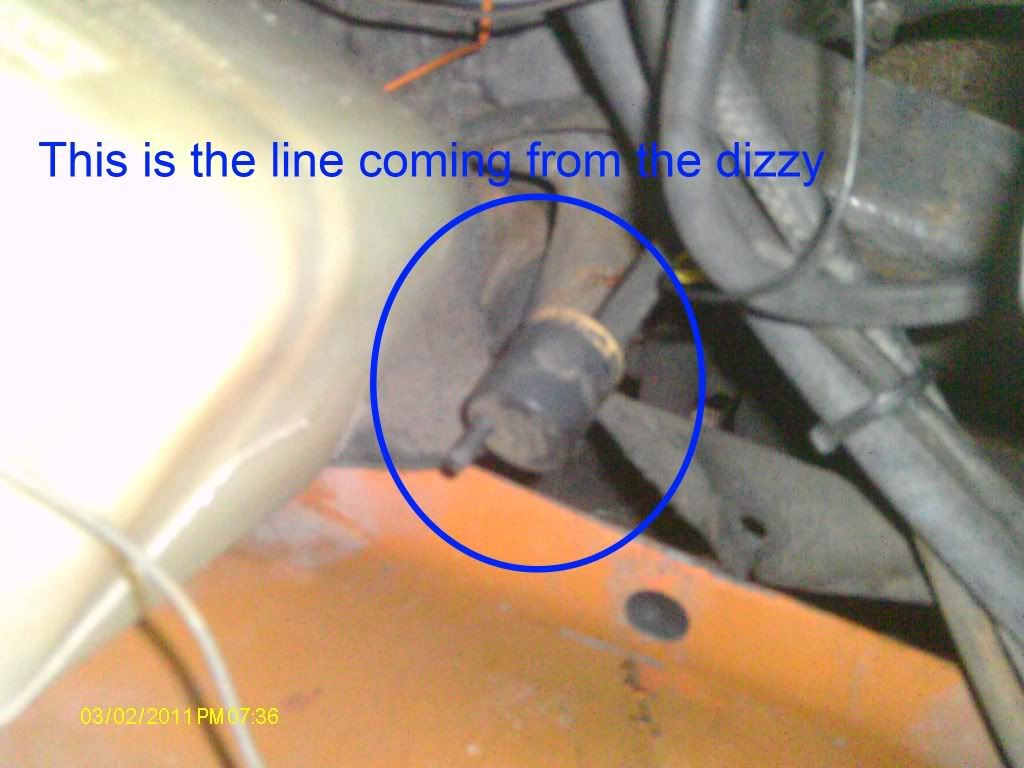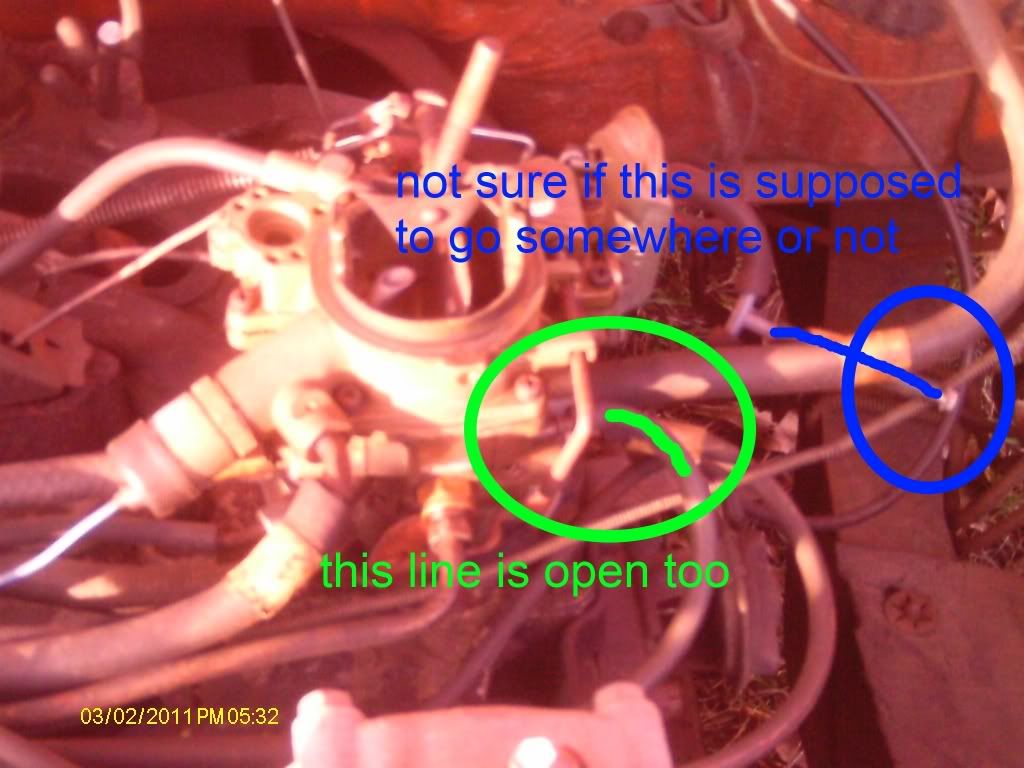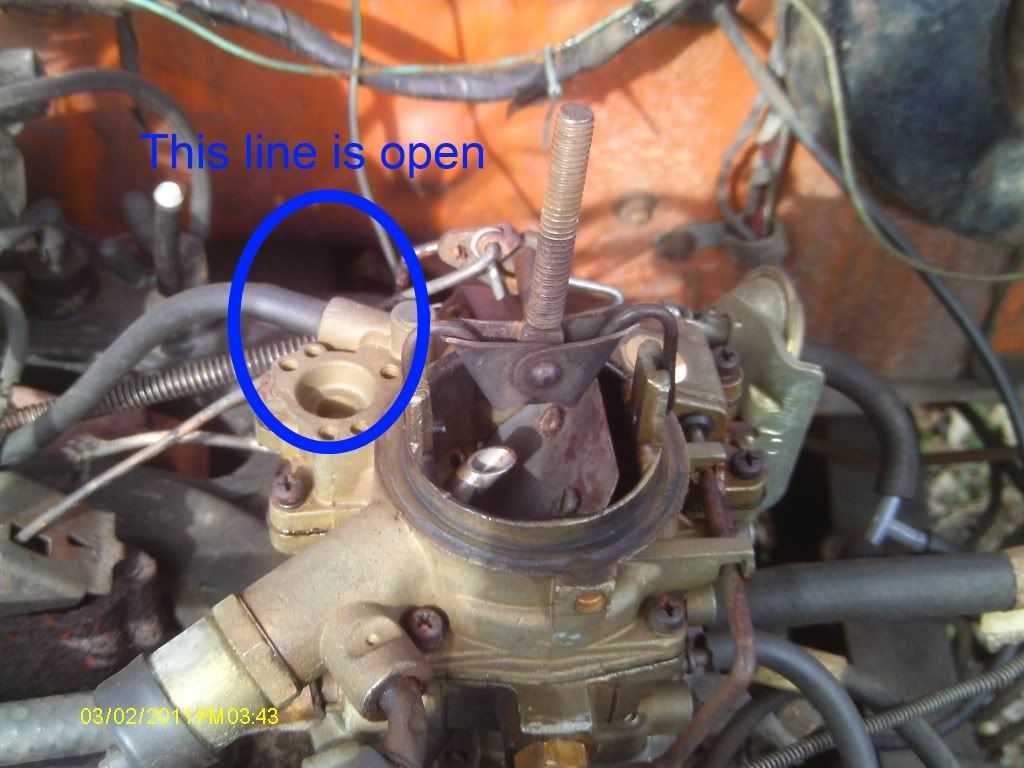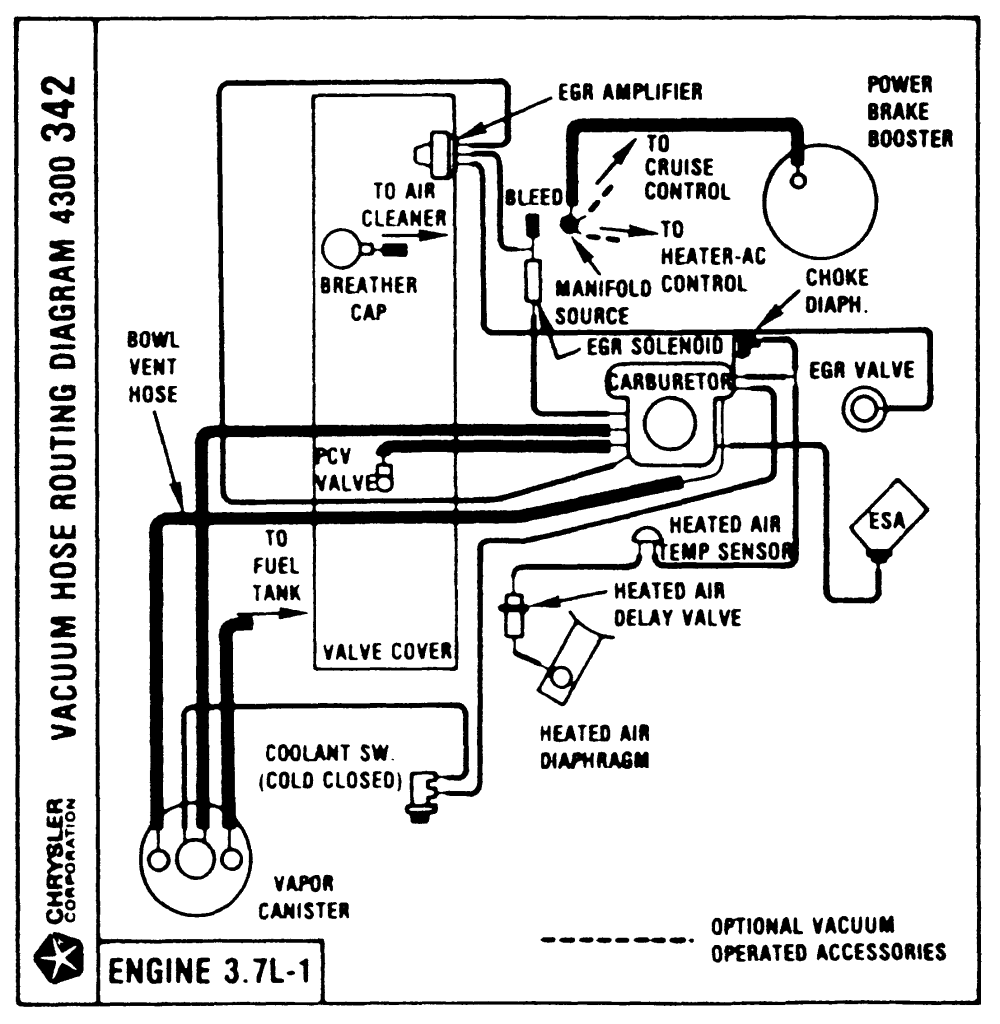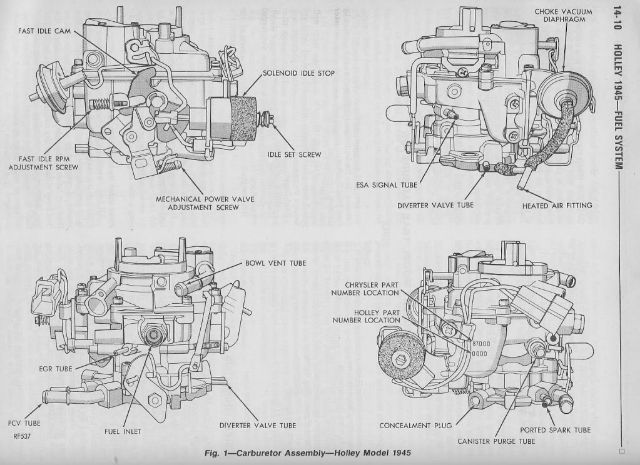1982 dodge d150, 1bbl, auto
the carb appears to have everything stock for the electric choke, except the control switch, or atleast i cant find one.
and also i dont have the OSAC valve but read that i would want to bypass anyway. but inline is a canister(ford product) pictured here, what is it, and do i need it?
this trucks engine bay is a mess, hard to tell whats been done, and what was stock, appears to have had the "orange box" convertion, but without the orange box(tho there is a ecu) heres a pic of the ecu
and cant seem to find the ballast resister?!?!?
ahhhh!! seriously thinking of ripping out all the wiring and rewiring the whole truck.
bought this to be a daily driver, and it is, but hard to work on something and have to drive it
thanks,
Kevin
